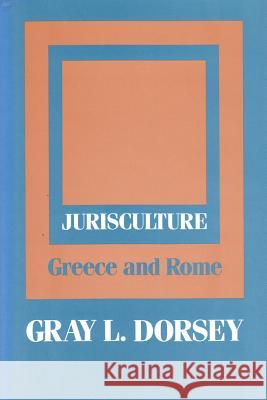Jurisculture: Greece and Rome » książka
Jurisculture: Greece and Rome
ISBN-13: 9780887382376 / Angielski / Twarda / 1988 / 88 str.
In this first of a definitive seven-volume work to be published by Transaction, by Gray L. Dorsey, a major figure in the philos-ophy and history of law, the ancient roots of the culture of Western jurisprudence are treated. This volume explores the forma-tion and regulation of societies in early Greece and classical Rome in relation to prevailing beliefs about reality, knowing, and desiring. And while part of a series, the volume clearly stands on its own.The central question addressed in this fundamental reexamination of the organi-zation and regulation of antiquity is how, in a world in which major physical and human events are defined as in control of the gods, and with few mortals said to pos-sess such powers, did the Greeks and Ro-mans distribute decision-making powers to ensure survival and wealth? The meth-ods by which these issues are addressed is called "Jurisculture" to distinguish it from the analytical procedures of either philoso-phy or empirical social research.Jurisculture identifies sets of mean-ings that derive from premises about real-ity and human nature, and beliefs con-sidered basic in organizing and controlling that reality. This work aims at nothing less than the discovery of new interrelations between prevailing ideas of antiquity and their codification and implementation in legal institutions and principles.This volume is addressed to those people who are concerned with the wise and effective use of public discourse to ar-rive at prudent national and foreign pol-icies. Professor Dorsey discusses philosophical and social ideas, but always in the context of their implications for the prob-lems of organizing and regulating human cooperation. The emergence of the phi-losophy of law has made possible the rapid development of normative theory in the social sciences. This volume provides a powerful historical and analytical tool for this broad-sweeping development.











